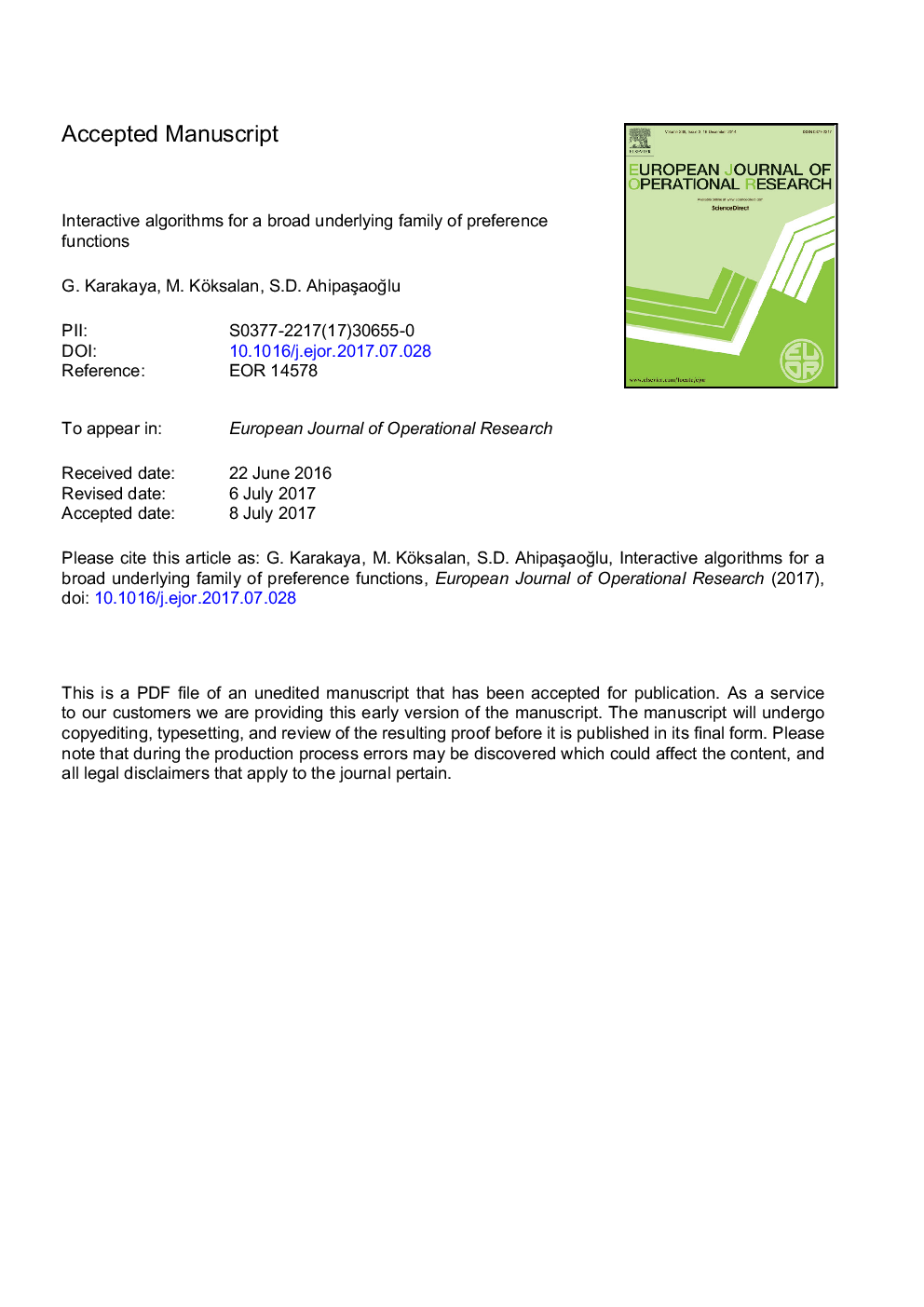| Article ID | Journal | Published Year | Pages | File Type |
|---|---|---|---|---|
| 6895386 | European Journal of Operational Research | 2018 | 37 Pages |
Abstract
In multi-criteria decision making approaches it is typical to consider an underlying preference function that is assumed to represent the decision maker's preferences. In this paper we introduce a broad family of preference functions that can represent a wide variety of preference structures. We develop the necessary theory and interactive algorithms for both the general family of the preference functions and for its special cases. The algorithms guarantee to find the most preferred solution (point) of the decision maker under the assumed conditions. The convergence of the algorithms are achieved by progressively reducing the solution space based on the preference information obtained from the decision maker and the properties of the assumed underlying preference functions. We first demonstrate the algorithms on a simple bi-criteria problem with a given set of available points. We also test the performances of the algorithms on three-criteria knapsack problems and show that they work well.
Related Topics
Physical Sciences and Engineering
Computer Science
Computer Science (General)
Authors
G. Karakaya, M. Köksalan, S.D. AhipaÅaoÄlu,
